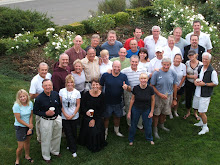"Keepers" is the term I've applied to Productive Employees. These are the folks that you love to have in any company, whether you are a coworker, a customer or its owner.
Keepers are people who you want more of. You want to work with them more often, and you want keepers in every role in the organization. If you could find enough people like them you could change the world.
Here are a 10 traits that define Keepers:
- Proactive: They exert initiative; when they see a need they just fill it. They don't wait for others to take action.
- Honest: They tell the truth. In business the only news that is useful is the truth. And if it is bad news it is vital that you learn it soon.
- Problem Solver: They get the job done. They don't just "try" to do things, they actually do them. Effort isn't worth much if it doesn't produce the desired outcomes.
- Self-Reliant: They address their own needs. If they need information they go and get it. If they need resources they find them. If they need rest they pause and refresh. If they need assistance they ask for it.
- Cooperative: They reach out to others. They realize that none of us is as smart or as capable as all of us so they think in terms of the entire team, not just their own ego.
- Grateful: They appreciate others and are grateful for the "blessings" they have. Keepers are constantly thanking others for the jobs they are doing, thanking their bosses for the support and benefits, thanking their customers for doing business here. Others want to be around them because they exude gratitude.
- Positive: They think optimistically. They look for solutions not just problems. They assume that "somewhere, somehow, there is a way." This causes them to see opportunities that others overlook.
- Growing: They look for ways to become worth more to their customer and employer. Lifelong learning is their commitment and they don't wait to be sent to a seminar when they can get the information on their own. They realize that anyone who has stopped improving is now slowing dying.
- Contributor: They don't waste time waiting to be told what to do. They look for productive ways to fill their time at work, ways to "move the ball closer to the goal." And they suggest improvements.
- Curious: They want to learn not just how things work but also why they matter. It is said that, "The person knows HOW may have a job, but the person who understands WHY is their boss."
Other people like to work with Keepers.
Atmosphere Matters
Keepers go nuts in a bureaucracy where there is all process and little production. They need a sense of meaning and purpose, so they constantly seek to make a contribution or produce an outcome. When the boss is unappreciative of their work, they tend to look elsewhere.
Two things that keep people productive are: Meaning and Appreciation.
The more meaning we find in our work, the more value we will bring to it.
The more appreciated we feel, the more we are motivated to earn even more appreciation.
A business owner friend of mine once said, "I don't give my employees much feedback unless they are on the wrong track. Then I correct them. They know when they are doing right because I don't say anything."
I told him, "If I worked for you I'd shrivel up and die! I NEED acknowledgement and feedback." So do most people.
Two things we all want to know are:
1. Does what I'm doing really matter?
2. Does anyone here care about me?
When we get good answers to those questions our world turns bright and our work usually shows it.
Systems Matter
The smart companies put systems in place to assure that people always see the value in what they are doing and realize that they are valued by their company and coworkers.
One of my friends who specializes in this area is John Schaefer. His company is called SRG: Schaefer Recognition Group. He talks about the Umbrella Strategy.
This is where you take all, and I do mean ALL, of your forms of acknowledgment, reward and recognition and weave them into a comprehensive strategy for showing your people that you care.
John stresses that recognition programs must be measured. There must be an orchestrated system and all parts of it should be trackable so that you KNOW what is working and how well.
Why not do an inventory right now of your Keepers?
Take a sheet of paper and just list all of the Keepers in your organization. Then study the list and reflect on it over the next week. See what you notice.
I think you will find patterns in your Keepers that can be used to find future Keepers and to develop current team members to the Keeper status.
If you'd like some help with this process, give me a call.
In the Spirit of Growth,
Jim Cathcart
I'll share one of John's brochures with you so you can see the approach I'm recommending.







No comments:
Post a Comment